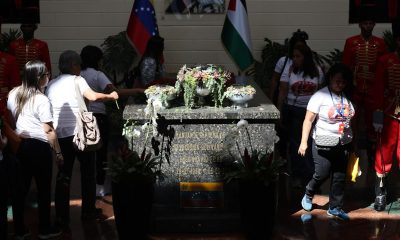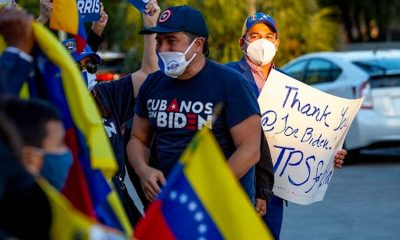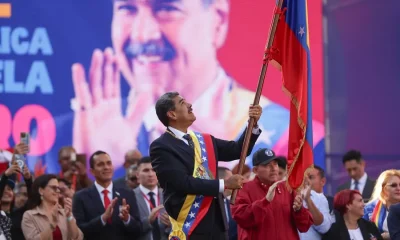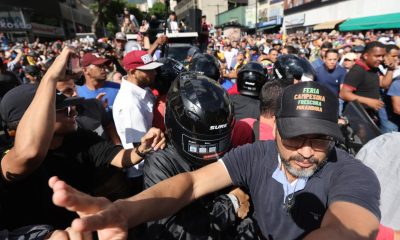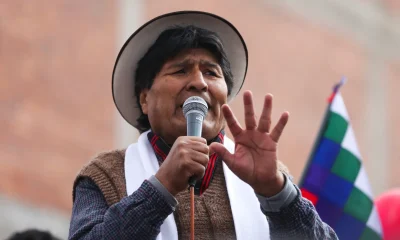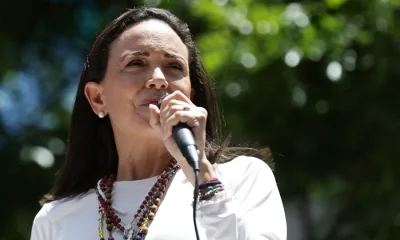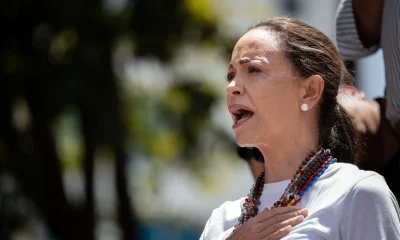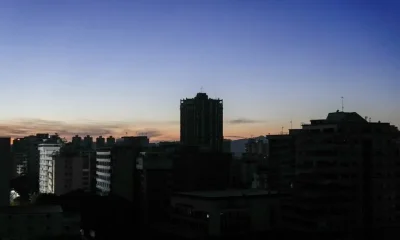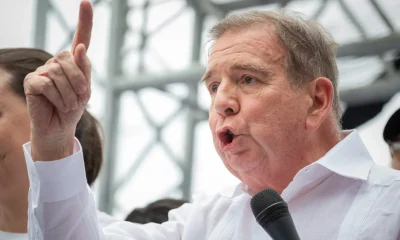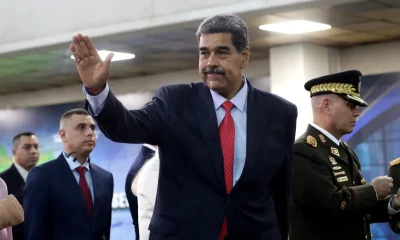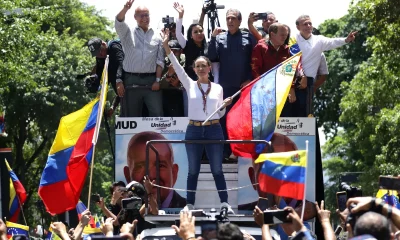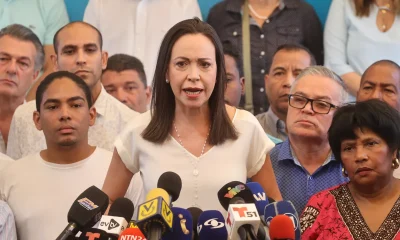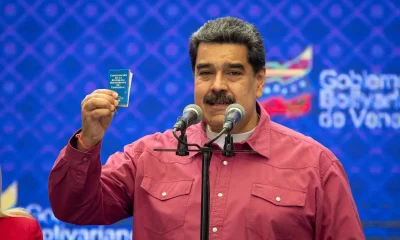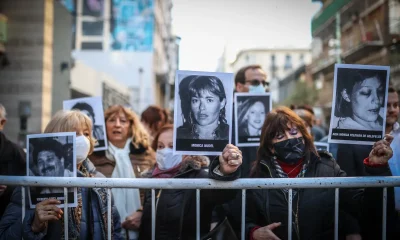International
Argentine prosecutor opens case for crimes against humanity in Venezuela
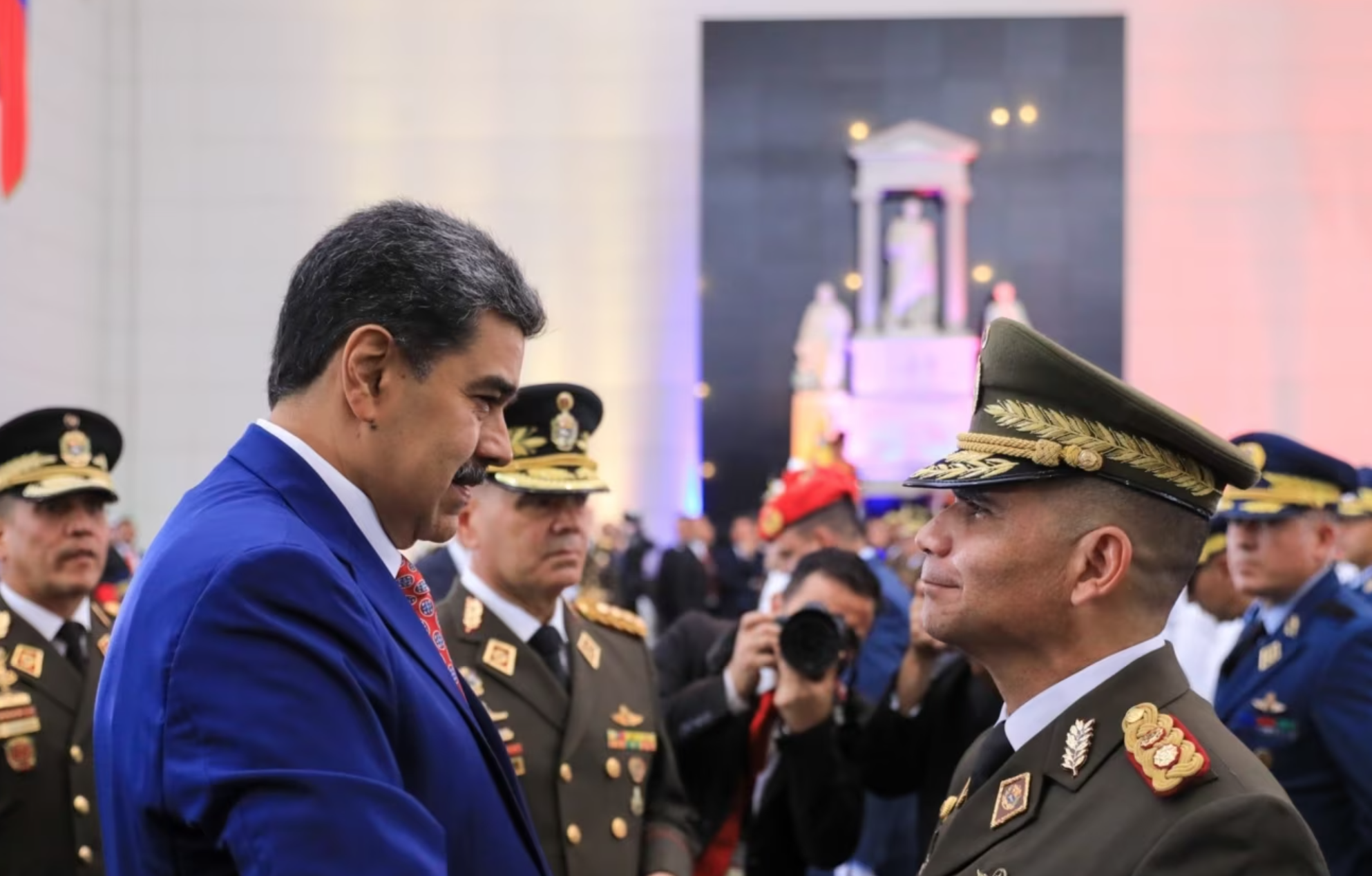
July 13 |
An Argentine prosecutor charged Venezuelan military officers who served as high commanders of the Bolivarian National Guard during the 2014 street protests with alleged crimes against humanity against opponents of the government of Nicolás Maduro.
The measure was ordered by federal prosecutor Carlos Stornelli, who resolved to push forward a criminal action “as allegedly responsible to, at least at the time, Major General Juan José Noguera Pietri, commander of the Bolivarian National Guard and Major General José Dionisio Goncálvez Mendoza, commander of the People’s Guard,” according to the provision released on Wednesday.
The International Criminal Court in The Hague reopened an investigation also for crimes against humanity for what happened during the demonstrations nine years ago.
The Argentine prosecutor also asked the United Nations, the Organization of American States (OAS) and the Inter-American Commission on Human Rights (IACHR) to send “copies of the reports of the international missions sent to Venezuela and all actions related to the dead demonstrators”.
The official of the Attorney General’s Office charged a dozen military officers of different ranks, including brigadier generals, colonels, lieutenant colonels and sergeants of the Carabobo and Tocuyito detachments.
Stornelli’s ruling, to which AP had access, was based on a complaint filed by the Clooney Foundation for Justice (CFJ), taking into account Argentina’s human rights jurisprudence.
This organization represents the families of two Venezuelan protesters killed nearly a decade ago.
The refusal of the Venezuelan justice system to investigate the leaders of the Bolivarian National Guard (only junior officers were tried as perpetrators) led the Clooney Foundation to bring a legal case before the Argentine courts, which have relied on the principle of universal jurisdiction to try crimes against humanity committed outside its territory.
It states that “the organized attack against the civilian population between February and May 2014 responded to a policy of the Venezuelan State” and that the murders of at least 25 demonstrators at the hands of security forces or collectives were part of a “systematic plan” of repression against opponents.
The complainants, based on the Rome Statute governing the International Criminal Court, argue that “the military commander shall be criminally responsible for crimes within the jurisdiction of the International Criminal Court committed by forces under his command.”
In his ruling, Stornelli requested a series of measures that must be previously endorsed by a federal judge, among them the release of exhortations to the Venezuelan justice system to send copies of the judicial proceedings and to the hospitals where the victims were assisted in order to access medical records, a list of the professionals who attended them and death certificates.
International
Paraguay summons Brazilian ambassador over Itaipú espionage scandal
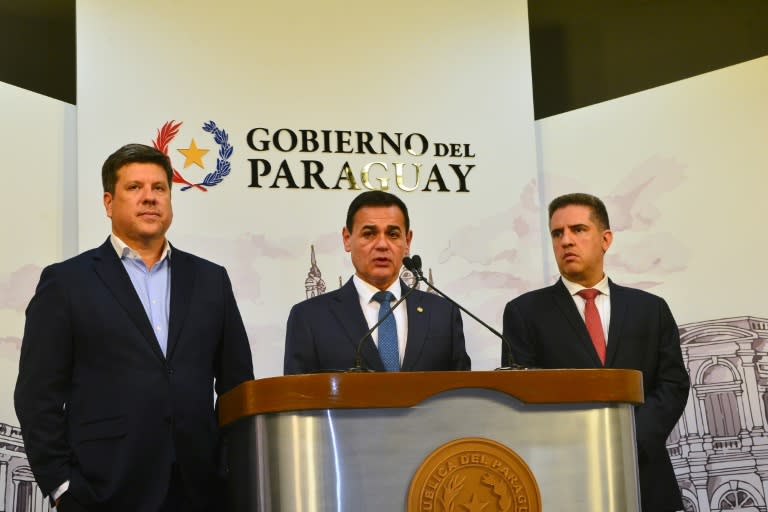
Paraguay summoned the Brazilian ambassador in Asunción on Tuesday to demand “explanations” and called its own representative in Brasília for consultations following Brazil’s acknowledgment of an espionage operation. The Brazilian government, led by President Luiz Inácio Lula da Silva, attributed the operation to the previous administration.
The surveillance effort aimed to uncover Paraguay’s position in now-suspended negotiations with Brazil regarding the pricing of electricity from the binational Itaipú hydroelectric plant, according to reports in the Brazilian press.
The Brazilian government “categorically denied any involvement in the intelligence operation,” stating in a Foreign Ministry communiqué on Monday that the espionage was carried out under former President Jair Bolsonaro’s administration (2019-2023).
“The operation was authorized by the previous government in June 2022 and was annulled by the interim director of the (state intelligence agency) ABIN on March 27, 2023, as soon as the current administration became aware of it,” Brazil’s government asserted.
Paraguay’s Foreign Minister Rubén Ramírez announced that Brazilian Ambassador José Antonio Marcondes de Carvalho was summoned “to provide detailed explanations” regarding the operation. Additionally, Paraguay recalled its diplomatic representative in Brasília “to report on aspects related to the intelligence activity conducted by Brazil regarding Paraguay’s government affairs.”
International
Elon Musk to step down as government advisor, per Trump insiders
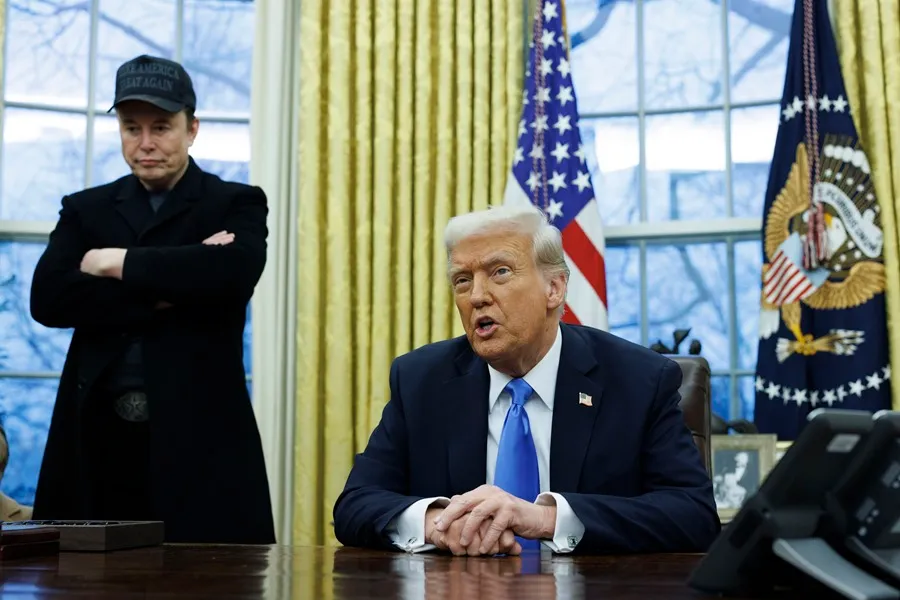
President Donald Trump has informed his inner circle that Elon Musk will be stepping down from his role as a government advisor, according to a report by Politico today.
Citing three individuals close to Trump, Politico states that the president is pleased with Musk’s leadership at the Department of Government Efficiency (DOGE), where he has implemented significant budget cuts. However, both have agreed that it is time for Musk to return to his businesses and support Trump from a different position outside the government.
A senior administration official told Politico that Musk will likely maintain an informal advisory role and continue to be an occasional visitor to the White House. Another source warned that anyone thinking Musk will completely disappear from Trump’s circle is “deluding themselves.”
According to the sources, this transition is expected to coincide with the end of Musk’s tenure as a “special government employee,” a temporary status that exempts him from certain ethics and conflict-of-interest regulations. This 130-day period is set to expire in late May or early June.
International
Milei vows to make Argentina so strong that Falkland Islanders “choose” to join

Argentine President Javier Milei reaffirmed his country’s claim over the Falkland Islands (known as the Islas Malvinas in Argentina) and praised the role of the nation’s armed forces during a ceremony marking the “Veterans and Fallen Soldiers of the Malvinas War Day,” commemorating 43 years since the 1982 conflict with the United Kingdom.
Argentina continues to assert sovereignty over the islands, arguing that Britain unlawfully seized them in 1833.
“If sovereignty over the Malvinas is the issue, we have always made it clear that the most important vote is the one cast with one’s feet. We hope that one day, the Malvinas residents will choose to vote with their feet and join us,” Milei stated.
“That is why we aim to become a global power—so much so that they would prefer to be Argentine, making deterrence or persuasion unnecessary. This is why we have embarked on a path of liberation, working to make Argentina the freest country in the world and once again the nation with the highest GDP per capita on the planet,” he added.
-

 Central America3 days ago
Central America3 days agoU.S. Homeland Security Secretary urges Mexico to strengthen Guatemala border
-

 Central America3 days ago
Central America3 days agoPanama grants Martinelli 72-hour extension to travel to Nicaragua
-

 International2 days ago
International2 days agoParaguay summons Brazilian ambassador over Itaipú espionage scandal
-

 Central America4 days ago
Central America4 days agoPanama police clarifies that Interpol alert for Martinelli is still pending
-

 International3 days ago
International3 days agoTrump urges Putin to reach peace deal
-

 International4 days ago
International4 days agoDeportation flight lands in Venezuela; government denies criminal gang links
-

 Sports2 days ago
Sports2 days agoFilipe Luis debuts as coach in Copa Libertadores with Flamengo
-

 Central America2 days ago
Central America2 days agoGuatemalan police officer killed in mob riots over baby kidnapping
-

 International2 days ago
International2 days agoElon Musk to step down as government advisor, per Trump insiders
-

 Sports2 days ago
Sports2 days agoVenezuela investigates 18 baseball players seeking asylum in Spain
-

 International2 days ago
International2 days agoMilei vows to make Argentina so strong that Falkland Islanders “choose” to join
-

 International2 days ago
International2 days agoICE agent’s arrest of suspect sparks controversy in Boston
-

 International2 days ago
International2 days agoÓscar Arias: Trump’s trade policies are a step backward














